ISSUE 7: Wilderness
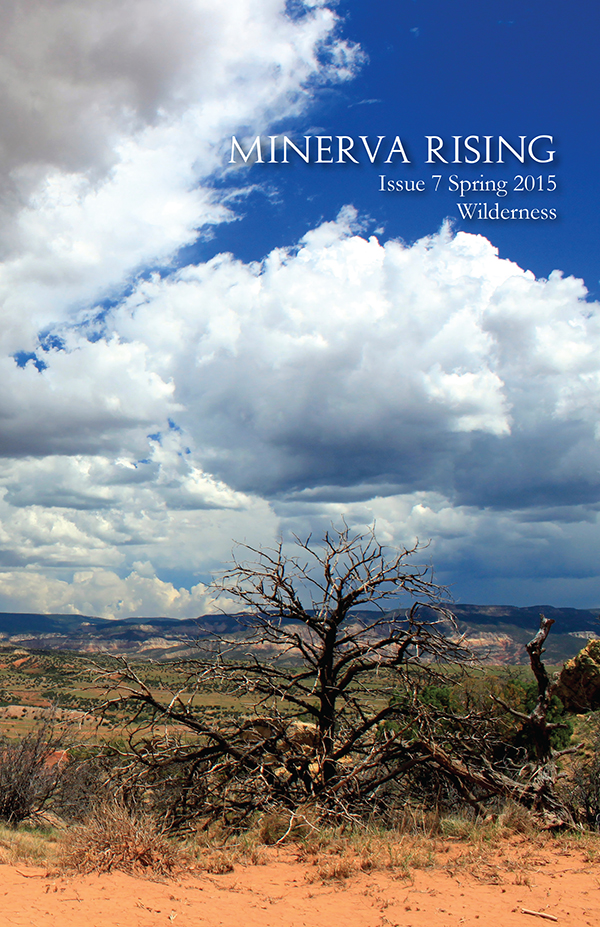
Contributors
We are proud to feature the following amazing contributors in this issue of Minerva Rising. Thank you for being a part of the Minerva community.
Suzanne Adams
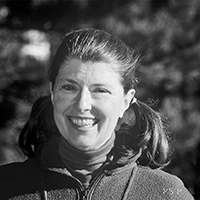 I chose to live more than 20 years of my adult life in the West. Free time was spent in the wilderness, backpacking and canoeing. Like the poet Arthur Ficke, I was “in love with high, far-seeing places.” The wild country was beautiful. Life there seemed vivid, unconfined. And yet, there was a time when the wilderness became terrible to me. What did it mean, to truly love the wilderness?
I chose to live more than 20 years of my adult life in the West. Free time was spent in the wilderness, backpacking and canoeing. Like the poet Arthur Ficke, I was “in love with high, far-seeing places.” The wild country was beautiful. Life there seemed vivid, unconfined. And yet, there was a time when the wilderness became terrible to me. What did it mean, to truly love the wilderness?
Jessie Brown
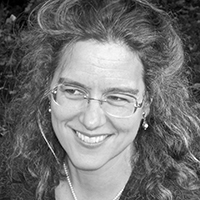 Jessie Brown is a poet and teacher in the Boston area. In addition to poems in various journals, she has two short collections, Lucky and What We Don’t Know We Know. She leads workshops in schools, libraries and community centers. “We crave wilderness—the challenge of that remoteness, harshness—I love the White Mountains. Yet wilderness is less remote than human harshness. The natural world asks nothing, demands nothing, lays itself open to us.”
Jessie Brown is a poet and teacher in the Boston area. In addition to poems in various journals, she has two short collections, Lucky and What We Don’t Know We Know. She leads workshops in schools, libraries and community centers. “We crave wilderness—the challenge of that remoteness, harshness—I love the White Mountains. Yet wilderness is less remote than human harshness. The natural world asks nothing, demands nothing, lays itself open to us.”
Linda J. Cayot
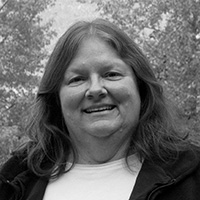 As a wildlife biologist, my life’s work has focused on nature and wilderness. After several seasons in the Rocky Mountains, I studied giant tortoises in the Galapagos Islands and have worked in Galapagos conservation for over thirty years. Beyond my work, my heart and soul sing of wildlife and wilderness. Here I tell the story of searching for a grizzly bear den and the spiritual experience of lying down where the old bear slept.
As a wildlife biologist, my life’s work has focused on nature and wilderness. After several seasons in the Rocky Mountains, I studied giant tortoises in the Galapagos Islands and have worked in Galapagos conservation for over thirty years. Beyond my work, my heart and soul sing of wildlife and wilderness. Here I tell the story of searching for a grizzly bear den and the spiritual experience of lying down where the old bear slept.
Stephanie Dickinson
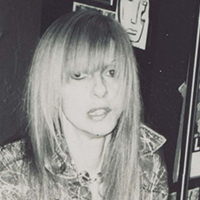 Stephanie Dickinson, a
Stephanie Dickinson, a
native Iowan, now lives in New York City. Port Authority Orchids, a novel in stories, is available from Rain Mountain Press. Her novel Love Highway has just been released by Spuyten Duyvil. “Little Miss Wyoming” contrasts the hyper-unreal world of the child beauty pageant with Wyoming’s rough country. Amoreena, the protagonist, is drawn to the world of snow that she perceives as a refuge from the runway. Her head is populated with primitive creatures, some from the prehistoric era. She speaks of the “lastness of things.” Lastness, a metaphor for the vanishing wilderness.
Tori Grant Welhouse
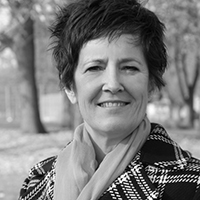 Tori published her first chapbook in 2014. She also received honorable mention in the Spoon River Poetry Review Editor’s Contest and third place in the Kay Saunders Emerging Poet Contest. She lives in Green Bay where she coordinates the poetry reading series IMAGINE for Wisconsin Fellowship of Poets. Regarding this issue’s theme, she has always found John Muir’s words to resonate. That going OUT into the wilderness was really a going IN. More at www.houseofthetomato.com.
Tori published her first chapbook in 2014. She also received honorable mention in the Spoon River Poetry Review Editor’s Contest and third place in the Kay Saunders Emerging Poet Contest. She lives in Green Bay where she coordinates the poetry reading series IMAGINE for Wisconsin Fellowship of Poets. Regarding this issue’s theme, she has always found John Muir’s words to resonate. That going OUT into the wilderness was really a going IN. More at www.houseofthetomato.com.
Gina Hietpas
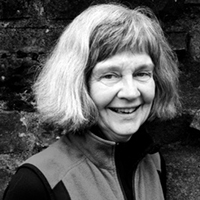 Olympic National Park is my back yard. Going alone into this wilderness has taught me perseverance and humility. I have learned, simultaneously, to respect my fragility while trusting my durability. Every animal encounter is a reminder of the contrivances on which humans depend for survival. My relationship to the environment is integral to my writing. I have written poetry since adolescence but only recently have submitted it for publication.
Olympic National Park is my back yard. Going alone into this wilderness has taught me perseverance and humility. I have learned, simultaneously, to respect my fragility while trusting my durability. Every animal encounter is a reminder of the contrivances on which humans depend for survival. My relationship to the environment is integral to my writing. I have written poetry since adolescence but only recently have submitted it for publication.
Jeanne Julian
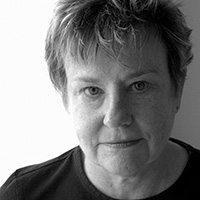 A North Carolina resident, Jeanne Julian appreciates landscape photography in the Southwest, where a stormy vista—like one at O’Keeffe’s Ghost Ranch in New Mexico—conveys the vulnerability of human “settlers” everywhere. Her photographs recently have appeared in moon Shine review and Kakalak, and in a juried exhibit at Theatre Art Galleries, High Point. Her poetry has been published in The Comstock Review, Naugatuck River Review, and other journals. She edits an award-winning photography newsletter, demands nothing, lays itself open to us.”
A North Carolina resident, Jeanne Julian appreciates landscape photography in the Southwest, where a stormy vista—like one at O’Keeffe’s Ghost Ranch in New Mexico—conveys the vulnerability of human “settlers” everywhere. Her photographs recently have appeared in moon Shine review and Kakalak, and in a juried exhibit at Theatre Art Galleries, High Point. Her poetry has been published in The Comstock Review, Naugatuck River Review, and other journals. She edits an award-winning photography newsletter, demands nothing, lays itself open to us.”
Julia Kadlec-Wagner
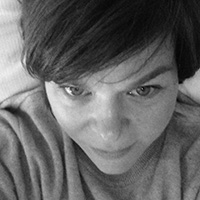 I lecture in Academic and Creative Writing at Fairleigh Dickinson University. As a poet, nature is my field book. If I am not touching water, wood, air and soil in the query, then I don’t think I am writing a poem. Nature is the best source because she has really strange, powerful voices. That’s probably the scariest part; she’s never fixed. I can capture fragments here and there if I listen.
I lecture in Academic and Creative Writing at Fairleigh Dickinson University. As a poet, nature is my field book. If I am not touching water, wood, air and soil in the query, then I don’t think I am writing a poem. Nature is the best source because she has really strange, powerful voices. That’s probably the scariest part; she’s never fixed. I can capture fragments here and there if I listen.
Anne MacNaughton
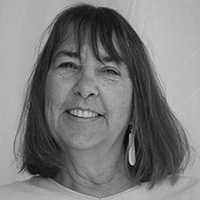 MacNaughton has lived half her life in the mountains of New Mexico. A nature-based feminist, she often writes in an adobe cabin on a cliff over a lake and canyon in a wildlife reserve where she observes deer, elk and turkey. She has been published in The Best Poetry of 1989 and Rag and Bone Shop of the Heart among others, and was a co-founder of Taos Poetry Circus. The poem is a true story.
MacNaughton has lived half her life in the mountains of New Mexico. A nature-based feminist, she often writes in an adobe cabin on a cliff over a lake and canyon in a wildlife reserve where she observes deer, elk and turkey. She has been published in The Best Poetry of 1989 and Rag and Bone Shop of the Heart among others, and was a co-founder of Taos Poetry Circus. The poem is a true story.
Mary Heather Noble
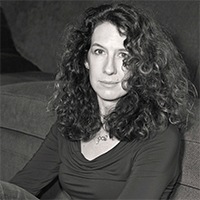 Mary Heather Noble is an environmental scientist and writer whose work is inspired by the natural world, family and place. Her writing often examines the disconnect between people and their habitat, as well as the environmental health impact from industrial contamination. Her work was recently honored with the 2014 Siskiyou Prize for New Environmental Literature and first prize in Creative Nonfiction’s The Human Face of Sustainability Contest. She is a graduate of the Stonecoast MFA in Creative Writing Program with the University of Southern Maine, and lives in Bend, Oregon, with her husband and two daughters.
Mary Heather Noble is an environmental scientist and writer whose work is inspired by the natural world, family and place. Her writing often examines the disconnect between people and their habitat, as well as the environmental health impact from industrial contamination. Her work was recently honored with the 2014 Siskiyou Prize for New Environmental Literature and first prize in Creative Nonfiction’s The Human Face of Sustainability Contest. She is a graduate of the Stonecoast MFA in Creative Writing Program with the University of Southern Maine, and lives in Bend, Oregon, with her husband and two daughters.
S. Lorraine Norwood
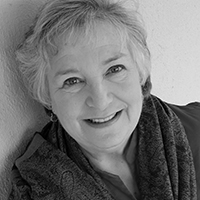 Writer S. Lorraine Norwood was a journalist before leaving Western North Carolina to work in Atlanta and study abroad. Her recent return to the mountains precipitated this story about the nature of place. When a community’s traditional spirits of protection are shackled, “progress” is soon to follow. The spirit of the valley cannot prevail against modern infiltration. Nature—glorious and monstrous, tragic and comic, vulnerable and invincible—demands a sacrifice.
Writer S. Lorraine Norwood was a journalist before leaving Western North Carolina to work in Atlanta and study abroad. Her recent return to the mountains precipitated this story about the nature of place. When a community’s traditional spirits of protection are shackled, “progress” is soon to follow. The spirit of the valley cannot prevail against modern infiltration. Nature—glorious and monstrous, tragic and comic, vulnerable and invincible—demands a sacrifice.
Amy Pence
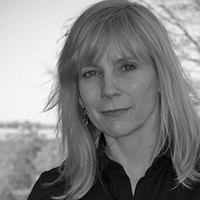 Amy Pence authored the poetry collections Armor, Amour and The Decadent Lovely. The winner of the Claire Keyes Award from the literary journal Soundings East, Amy has new poems forthcoming in Quaint Magazine and Bluestem. “Your Mythos” was inspired by a frequent 20-mile bike ride she takes near her home in Carrollton, Georgia. Wilderness evokes a contemplation of form and place. As we move through poetic space, often a mental wilderness, what ecstasies will we discover?
Amy Pence authored the poetry collections Armor, Amour and The Decadent Lovely. The winner of the Claire Keyes Award from the literary journal Soundings East, Amy has new poems forthcoming in Quaint Magazine and Bluestem. “Your Mythos” was inspired by a frequent 20-mile bike ride she takes near her home in Carrollton, Georgia. Wilderness evokes a contemplation of form and place. As we move through poetic space, often a mental wilderness, what ecstasies will we discover?
Sosha Pinson
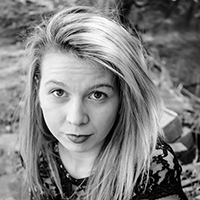 Sosha Pinson holds a BFA in Creative Writing from Morehead State University in Kentucky and an MFA in Poetry from Drew University’s Low Residency Program. She currently lives in Sterling, Virginia and her recent poems can be found in Dirty Chai, Eunoia Review, Still: The Journal, among others.
Sosha Pinson holds a BFA in Creative Writing from Morehead State University in Kentucky and an MFA in Poetry from Drew University’s Low Residency Program. She currently lives in Sterling, Virginia and her recent poems can be found in Dirty Chai, Eunoia Review, Still: The Journal, among others.
K K Shockey
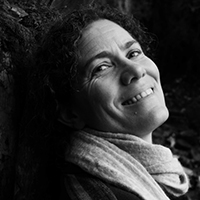 My passion lies in the place I live—at the edge of vast swatches of wilderness. Yet humans have shaped the landscape and pushed that wilderness from our immediate surroundings. I want to see vitality and health come back to the forests and creeks. The first step is allowing our waterways to slow down, move in curves, and run wild. I see the beaver as the hack, or engineer, to bring this about.
My passion lies in the place I live—at the edge of vast swatches of wilderness. Yet humans have shaped the landscape and pushed that wilderness from our immediate surroundings. I want to see vitality and health come back to the forests and creeks. The first step is allowing our waterways to slow down, move in curves, and run wild. I see the beaver as the hack, or engineer, to bring this about.
